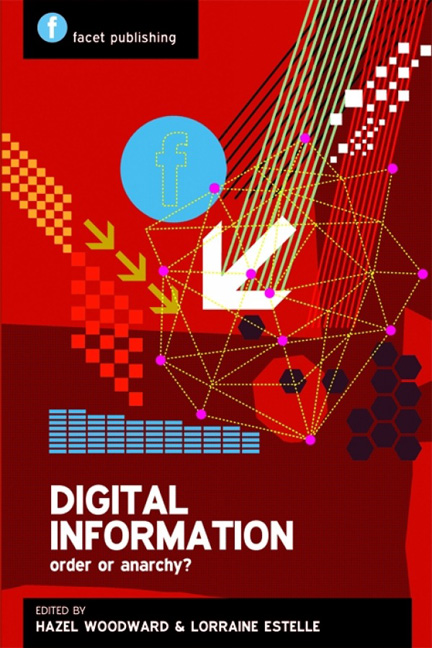Book contents
- Frontmatter
- Contents
- Acknowledgements
- Contributors
- Preface
- 1 Introduction: digital information, an overview of the landscape
- 2 Scholarly communications: the view from the library
- 3 Scholarly communications: the publisher's view
- 4 E-books and scholarly communication futures
- 5 Digitizing the past: next steps for public sector digitization
- 6 Resource discovery
- 7 Who owns the content in the digital environment?
- Index
6 - Resource discovery
Published online by Cambridge University Press: 08 June 2018
- Frontmatter
- Contents
- Acknowledgements
- Contributors
- Preface
- 1 Introduction: digital information, an overview of the landscape
- 2 Scholarly communications: the view from the library
- 3 Scholarly communications: the publisher's view
- 4 E-books and scholarly communication futures
- 5 Digitizing the past: next steps for public sector digitization
- 6 Resource discovery
- 7 Who owns the content in the digital environment?
- Index
Summary
Introduction
Today's researchers use a wide variety of tools to discover the information resources they require. These resources may be located within a physical library or available on the web and, if so, are available in a proliferation of formats and interfaces, which has often meant that users were directed to a number of different in-house or external systems to find the information they required. Over the past ten years libraries have, to a varying degree, sought to manage and expose this data, while attempting to dissuade users from flocking to the simplicity of Google (Scholar), Amazon, YouTube, etc. However, the provision of these different resource-discovery systems uses an increasing amount of the resources in today's academic library.
A review of the recent literature suggests that users prefer simple search interfaces such as Google (Nicholas et al., 2009). The implication here is that libraries often fail to make their resources discoverable and that this may in turn affect the perceived value of the library.
In a recent report for vice-chancellors and senior institutional managers the Research Information Network (RIN) stated that:
The usefulness of the content and collections provided by libraries and from other sources depends on how easily researchers can discover, locate and gain access to them. Institutions need to ensure that their researchers can readily make use, through the library and other providers, of services that enable them to discover, locate and gain access to information sources that may be relevant to their research.
(RIN, 2008)However, do libraries have a sufficient understanding of their users to provide this level of support in the way the libraries users expect and demand? Is there a very real danger of information overload from the plethora of different systems or lack of intuitive interfaces driving users towards Google? Is this actually a problem? In a time of severe fiscal hardship how can libraries restore their importance and reclaim their position?
This chapter looks at both traditional methods of resource discovery and the next-generation systems entering the marketplace in 2009 and asks if these will be appropriate in the next five to ten years.
- Type
- Chapter
- Information
- Digital InformationOrder or anarchy?, pp. 133 - 164Publisher: FacetPrint publication year: 2009
- 1
- Cited by



